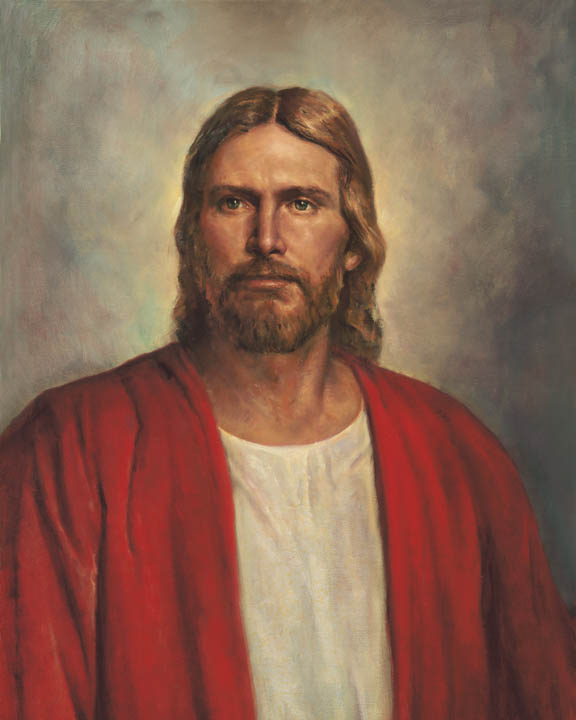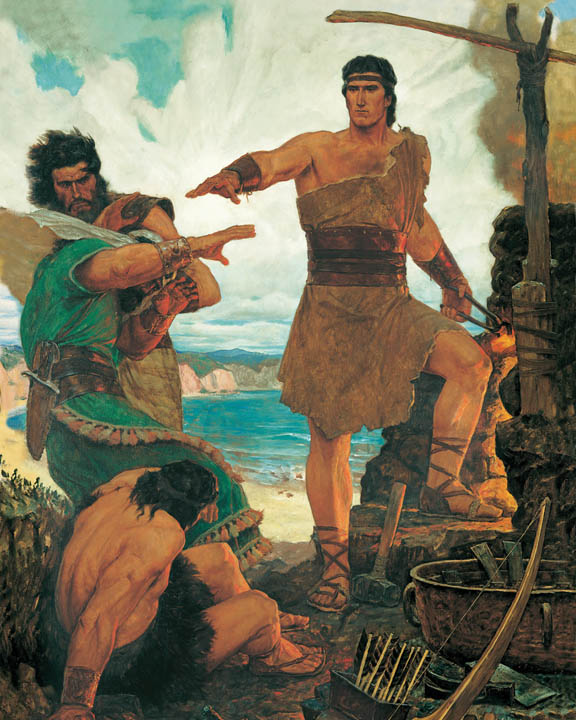As a member of The Church of Jesus Christ of Latter-day Saints (often referred to by others as the Mormon church) and a student at BYU, I often read from the Book of Mormon. The Book of Mormon is a sacred book of scripture that offers an additional witness of Jesus Christ and God’s glory. It is a companion to the Bible and contains the writings of prophets that lived on the American continent during the same period of time as much of the Bible’s prophets.
Just the other day in one of my religion classes at BYU, where we are studying the Book of Mormon, we read a story that is familiar to me from my youth but this time a particular phrase struck me and taught me a life lesson that I think not only applies to my personal happiness but also helped me understand how to become more like Christ.

The story is found in the first few chapters of the Book of Mormon. During the time directly preceding the destruction of Babylon (about 420 B.C.) many prophets went forth calling the wicked people of Jerusalem to repentance. Among these prophets were the Bible’s Ezekiel, Daniel and Jeremiah. Another of these prophets was Lehi, the first prophet of the Book of Mormon. God commanded Lehi and his family to leave Jerusalem to escape destruction. One could imagine how hard it would be to leave the comfort of your home and associates to enter the unknown. Among Lehi’s four sons there were two who were not pleased with their father’s directions, although they journeyed with their family, the scriptures say they often “murmured”. After much time in the wilderness, on one particular day, Lehi’s two wayward sons were displeased with their righteous brother and took him, bound him and began to beat him. Yielding to their mother’s pleas they stopped and aware of their error they sorrowfully asked for forgiveness. The beaten brother’s words to his aggressors are what stuck out to me, he said, “And it came to pass that I did frankly forgive them all that they had done, and I did exhort them that they would pray unto the Lord their God for forgiveness…” (1 Nephi 7:21).
This passage of scripture is a powerful lesson to me about how a righteous man of God responds to aggression, unkindness or trial. Lehi’s son, named Nephi, did not just forgive them but he frankly forgave them. How often have I been injured by another’s actions and dwelled on my injury while feeling justified or even forgiven with my lips and not my heart. Nephi frankly forgave, meaning to me, he did not think about the incident any longer but thought about the sorrow of his brothers. With that in mind, surely he could do nothing but forgive entirely and instantly. Nephi desired their well-being therefore he did not just forgive them, but sent them to the Lord where he know they could find great forgiveness than he could give.
I am thankful for the Book of Mormon and the message from the Spirit that it teaches me. I know the book is the word of God. I see the blessings from the Lord in my life when I apply its teachings and I feel a greater closeness to my Savior when I do. I hope that like Nephi and most importantly, like the Savior I can frankly forgive.
Article written by Andrew B





Recent Comments